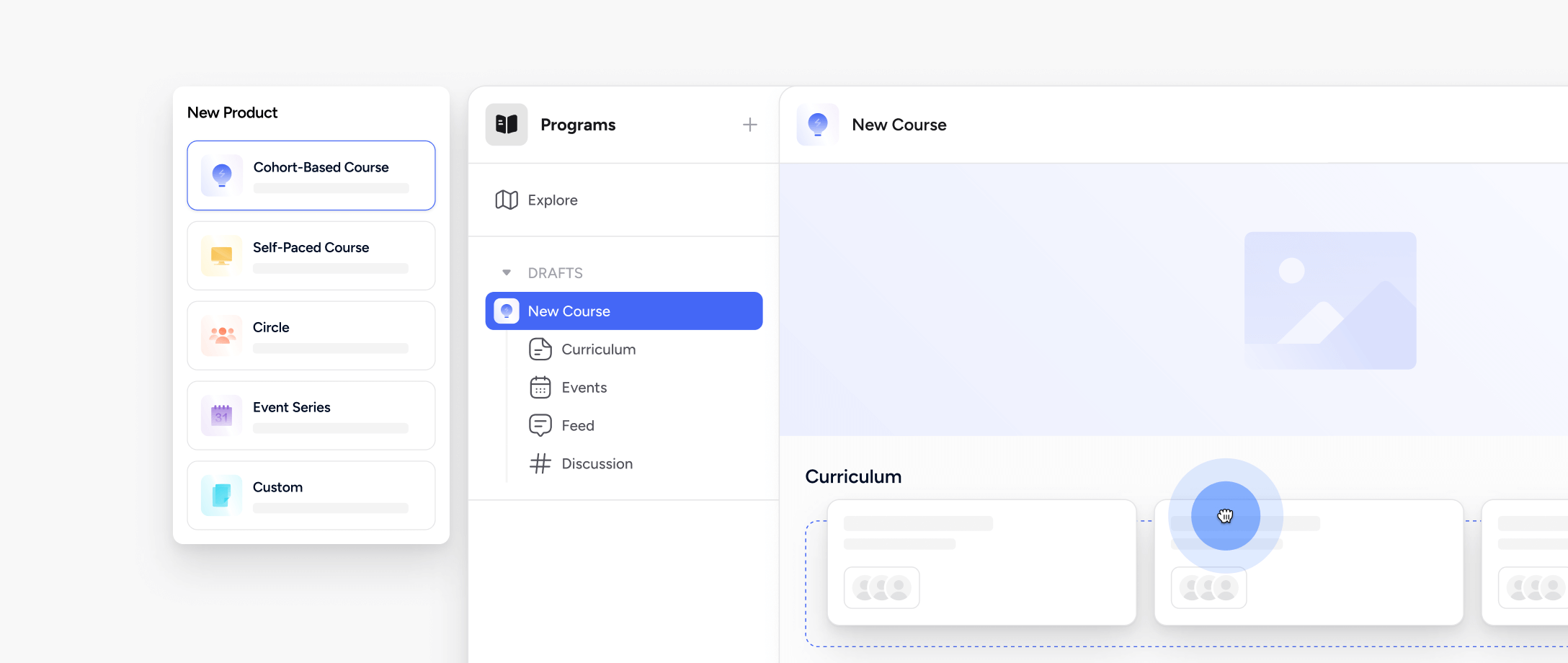Virtual academies
& bootcamps
Grow your platform quickly and efficiently, thanks to seamless cohort management and simplified content building on a beautifully designed platform.

















A learning platform like you’ve never seen before
Experience an all-in-one social learning platform that provides a seamless learning experience with all the integrated tools and apps you can dream of.




Why leading virtual academies and bootcamps choose Disco
From our uncomplicated member management to incredible productivity boosts, it’s easy to see why smart teams are running their programs with us.
All-in-one social learning platform
Get your community building tools, live events, and entire learning suite all in one beautifully designed learning platform.
Diverse learning options
Everyone learns differently; that’s why we offer both cohort and asynchronous learning with assignments, quizzes, and more.
Modern design
An LMS like you’ve never experienced, with a Notion-like set-up, custom navigation, and modular spaces.
Live events
Live events drive engagement and create dynamic learning opportunities for your bootcamp attendees.
Efficient route to monetization
Disco makes it easy to quickly build, launch, and scale your courses, gatekeeping your content and adding payment options.
Easy to build, easy to use
Disco AI makes its almost as easy to create your content as it is for your students to learn it, thanks to tools like our curriculum builder and custom branding.

Y-Space is York's pan-university entrepreneurship hub

Dr. Alexander Nicholas, Ph.D.
Executive Vice President

A social learning platform as easy to manage as it is to use
Disco brings more to the table than just an incredible learning experience. We created our platform with virtual academies and bootcamps in mind so your learners get the benefits of social connection and learning, all in one place.

Y-Space is York's pan-university entrepreneurship hub

Christian Peverelli
Co-Founder

Spend less time managing your courses, and more time growing them
Simple building tools save you countless hours creating content and managing your cohorts. Plus, Disco’s AI sidekick handles everything from course creation to learner questions, leaving you free to focus on scaling and growth.
Let Disco AI save you stress, energy, and countless hours
With Disco, AI isn’t just an afterthought—it’s an integrated part of our design. If you’re looking to level up your content creation while also saving time, you’ve come to the right social learning platform.
See why virtual academies & bootcamps love Disco
Resources for virtual academy & bootcamp operators
Cohort-based or asynchronous: Disco offers the flexibility you need to accommodate different teams and individuals. See for yourself how Disco can make an impact on your team.
Ready to supercharge your virtual academy with Disco?














































































































































